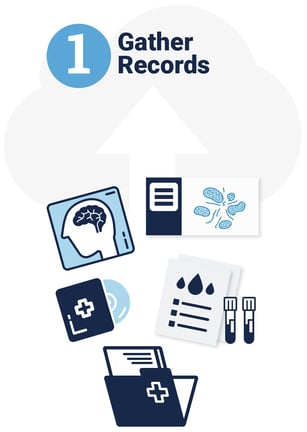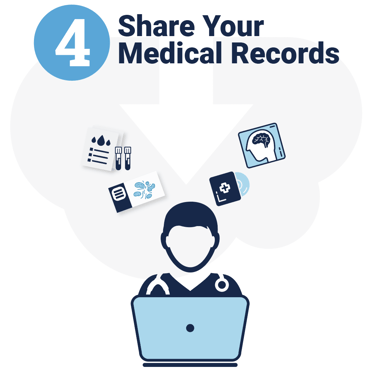A Step-by-Step Guide to Getting a Second Opinion

When and how do you go about getting a second opinion? When it’s not a medical emergency and you're dealing with a major medical decision, gathering additional perspectives and information can guide you through figuring out what is best for you.
You may want to consider getting a second opinion when:
- A more specific diagnosis or confirmation of diagnosis is desired
- You are dealing with a serious, rare, or complex condition
- Considering a major medical decision about next steps, such as surgery
- Considering a new treatment or trying to decide between multiple options
- Searching for alternative treatment options
- Your condition or illness is not improving or is getting worse
- If you're confused or struggling with a medical challenge
As specialties become more concentrated, it is becoming more normalized to seek expertise directly from the specialist, wherever they may be. Second opinions are also emerging for specific parts of a diagnosis, such as for pathology. If you're navigating this process or helping someone a loved one, the following steps and suggestions offer an outline of what you can generally expect as part of your second opinion journey:
 |
You will need to gather medical records from your first diagnosis. With today's electronic health record systems, much of the data that is required should be available to you in electronic, or if not analog (paper) copies. Your medical images (x-rays, CT scans, ultrasounds, etc.) and history (pathology reports, lab and bloodwork results, etc.) should be available electronically or at least on CDs or DVDs. Gather whatever information about your condition that you can so that you have it available once you find that expert for your second opinion. That should include at least pathology reports, test results and scans, as well as the text of the original physician's opinion. |
|
|
Today, more and more payers are covering all or part of the cost of a second opinion. Some may suggest or require second opinions prior to surgery or other costly or invasive treatments, such as the Centers for Medicare and Medicaid (CMS). Insurance companies do not want to pay for treatments that are inappropriate, causing further issues or delaying necessary treatment. Medicare Part B pays 80% of the cost of obtaining a second opinion. If your second opinion differs from the first, Medicare will pay a similar percentage of a third opinion. Other payers, such as Cigna, Aetna, and United Healthcare are also reimbursing for second opinions in certain circumstances. |
|
If your insurance company won't cover your second opinion, some foundation and non-profits will help. Foundations and patient advocacy groups, like Target Cancer and the Mike Shane Memorial Fund, will help guide patients to receiving a second opinion. The Mike Shane Fund helps to pay for second opinions for patients diagnosed with cholangiocarcinoma. |
|
|
|
When you're confronted with a critical medical issue, ideally you will want to see the most experienced physician in that field, who may not be located nearby. Thanks to the rising adoption of telehealth, many centers of excellence have already adopted online second opinion programs, like Memorial Sloan Kettering and other top hospitals, providing widespread access to their highly specialized physician teams. Here are a few places to start when looking for and expert:
|
|
|
Locating, uploading, and sharing medical records can feel overwhelming for patients. That is why in 2020 Purview launched a DICOM study uploader, helping patients to send single DICOM images to their doctors, available to patients free of charge. |
|
|
|
|
|
|
|
Fully participate in your treatment plan, continue learning, and advocate for yourself. Knowledge is power. Asking the right questions and seeking the best expertise can ensure you select the treatment plan that is most appropriate for you. |
|









